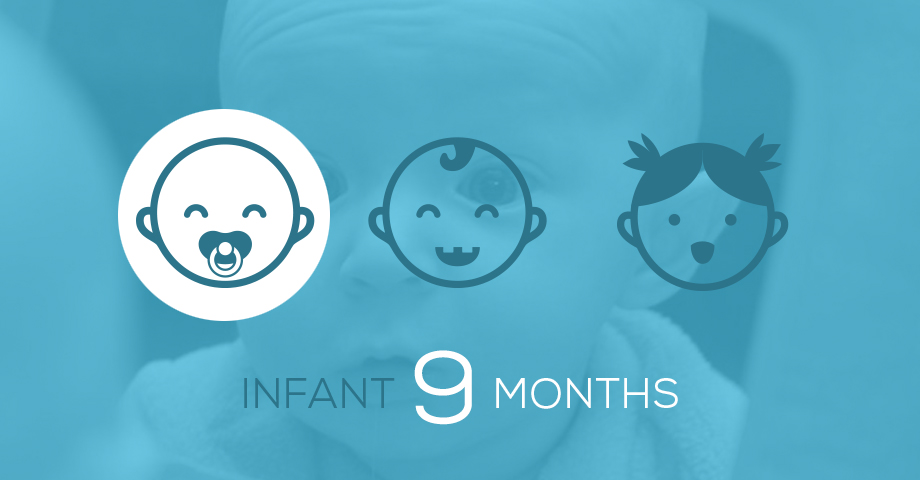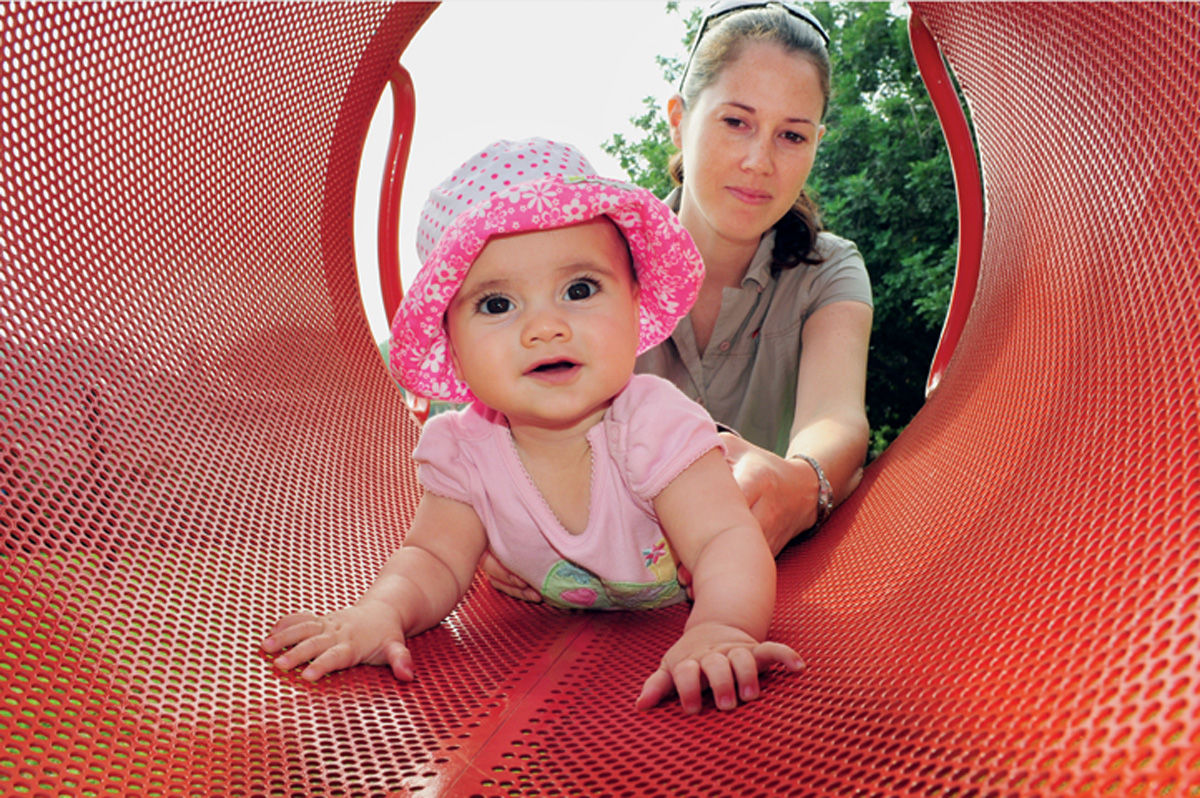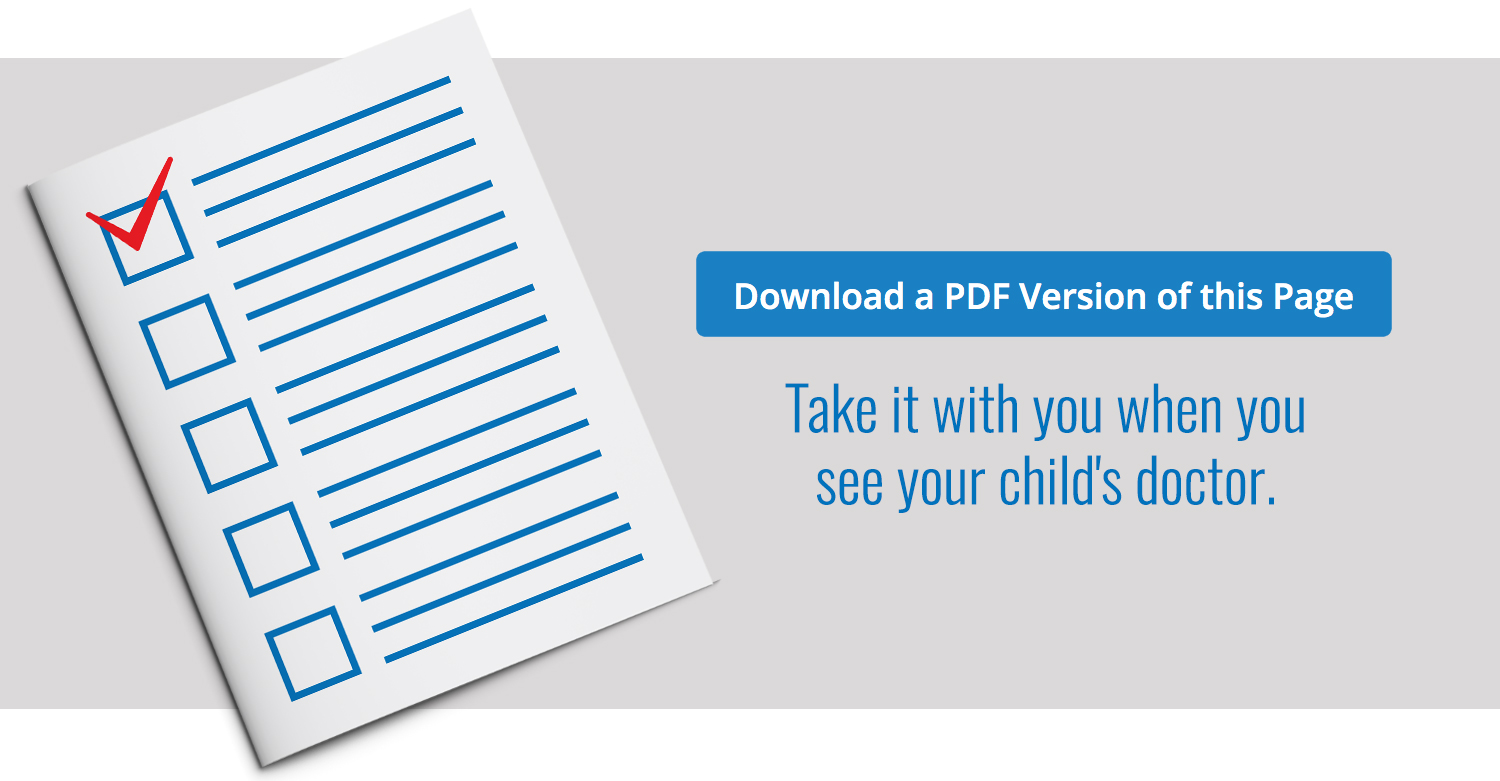
How your child plays, learns, speaks, acts and moves offers important clues about your child’s development. Developmental milestones are the things most children (75% or more) can do by a certain age.
Check the milestones your child has reached by the end of 9 months, and talk with your child’s doctor at every visit about the milestones your child has reached and what to expect next.

What Most Babies Do at This Age:
Social / Emotional
- Is shy, clingy, or fearful around strangers
- Shows several facial expressions, like happy, sad, angry, and surprised
- Looks when you call her name
- Reacts when you leave (looks, reaches for you, or cries)
- Smiles or laughs when you play peek-a-boo
Language / Communication
- Makes different sounds like “mamamama” and “babababa”
- Lifts arms up to be picked up
Cognitive (learning, thinking, problem-solving)
- Looks for objects when dropped out of sight (like his spoon or toy)
- Bangs two things together
Movement / Physical Development
- Gets to a sitting position by herself
- Moves things from one hand to her other hand
- Uses fingers to “rake” food towards himself
- Sits without support
IT’S TIME FOR DEVELOPMENTAL SCREENING! |
||
|
At 9 months, your baby is due for general developmental screening, as recommended for all children by the American Academy of Pediatrics. Ask the doctor about your baby’s developmental screening. Other important things to share with the doctor:
|
||
Concerned about your child’s development?
You know your child best. Don’t wait. If your child is not meeting one or more milestones, has lost skills he or she once had, or you have other concerns, act early. Talk with your child’s doctor, share your concerns, and ask about developmental screening.
If you or the doctor are still concerned:
- Ask for a referral to a specialist who can evaluate your child more; and
- Call your state or territory’s early intervention program to find out if your child can get services to help. Learn more and find the number at cdc.gov/FindEI.
For more on how to help your child, visit cdc.gov/Concerned.
Help Your Baby Learn and Grow
Content provided by the Centers for Disease Control and Prevention’s “Learn the Signs. Act Early.” material and are not a substitute for a standardized, validated developmental screening tool.



